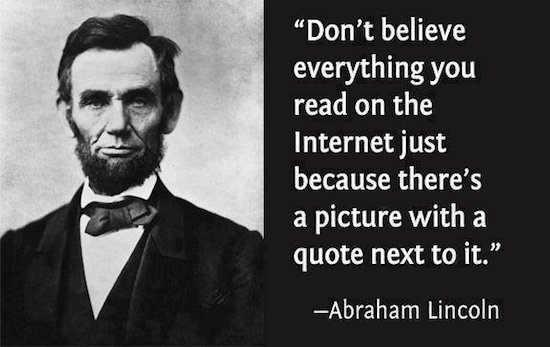chansen
Still waiting...
- Pronouns
- He/Him/His
http://www.cbc.ca/radio/spark/339-f...ore-1.3894283/how-fake-news-spreads-1.3895022
The new word I learned from this piece is "micropropaganda". That word captures what fake news really is quite brilliantly.
The other point they made that resonates with me is that people believe what they want to believe. We see that here at WC2. Colbert warned about "truthiness" years ago, and we all laughed. But damn, people will literally ignore the truth in front of them for the lie they admire. It's nauseating.
The new word I learned from this piece is "micropropaganda". That word captures what fake news really is quite brilliantly.
The other point they made that resonates with me is that people believe what they want to believe. We see that here at WC2. Colbert warned about "truthiness" years ago, and we all laughed. But damn, people will literally ignore the truth in front of them for the lie they admire. It's nauseating.

